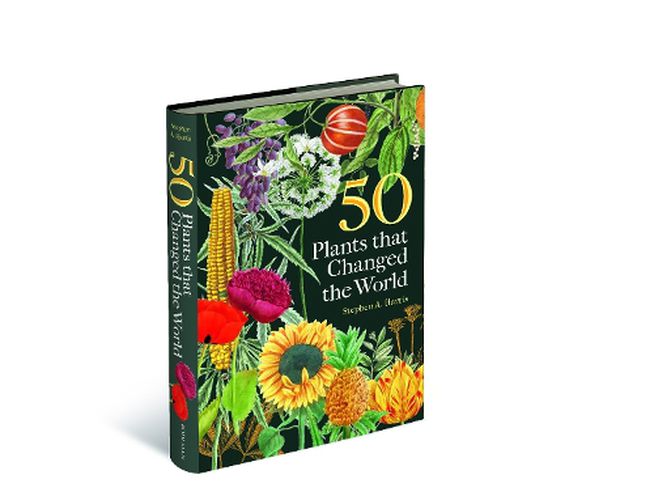Readings Newsletter
Become a Readings Member to make your shopping experience even easier.
Sign in or sign up for free!
You’re not far away from qualifying for FREE standard shipping within Australia
You’ve qualified for FREE standard shipping within Australia
The cart is loading…






Have you ever stopped to think about how your morning cappuccino came to be? From the coffee bush that yielded the beans, to the grass for the cattle - or perhaps the soya - that produced the milk, plants are an indispensable part of our everyday life.
Beginning with some of the earliest uses of plants, Stephen Harris takes us on an exciting journey through history, identifying fifty plants that have been key to the development of the western world, discussing trade, imperialism, politics, medicine, travel and chemistry along the way. There are plants here that have changed landscapes, fomented wars and fuelled slavery. Others have been the trigger for technological advances, expanded medical knowledge or simply made our lives more pleasant. Plants have provided paper and ink, chemicals that could kill or cure, vital sustenance and stimulants. Some, such as barley, have been staples from earliest times; others, such as oil palm, are newcomers to western industry.
We remain dependent on plants for our food, our fuel and our medicines. As the wide-ranging and engaging stories in this beautifully illustrated book demonstrate, their effects on our lives continue to be profound and often unpredictable.
$9.00 standard shipping within Australia
FREE standard shipping within Australia for orders over $100.00
Express & International shipping calculated at checkout
Have you ever stopped to think about how your morning cappuccino came to be? From the coffee bush that yielded the beans, to the grass for the cattle - or perhaps the soya - that produced the milk, plants are an indispensable part of our everyday life.
Beginning with some of the earliest uses of plants, Stephen Harris takes us on an exciting journey through history, identifying fifty plants that have been key to the development of the western world, discussing trade, imperialism, politics, medicine, travel and chemistry along the way. There are plants here that have changed landscapes, fomented wars and fuelled slavery. Others have been the trigger for technological advances, expanded medical knowledge or simply made our lives more pleasant. Plants have provided paper and ink, chemicals that could kill or cure, vital sustenance and stimulants. Some, such as barley, have been staples from earliest times; others, such as oil palm, are newcomers to western industry.
We remain dependent on plants for our food, our fuel and our medicines. As the wide-ranging and engaging stories in this beautifully illustrated book demonstrate, their effects on our lives continue to be profound and often unpredictable.